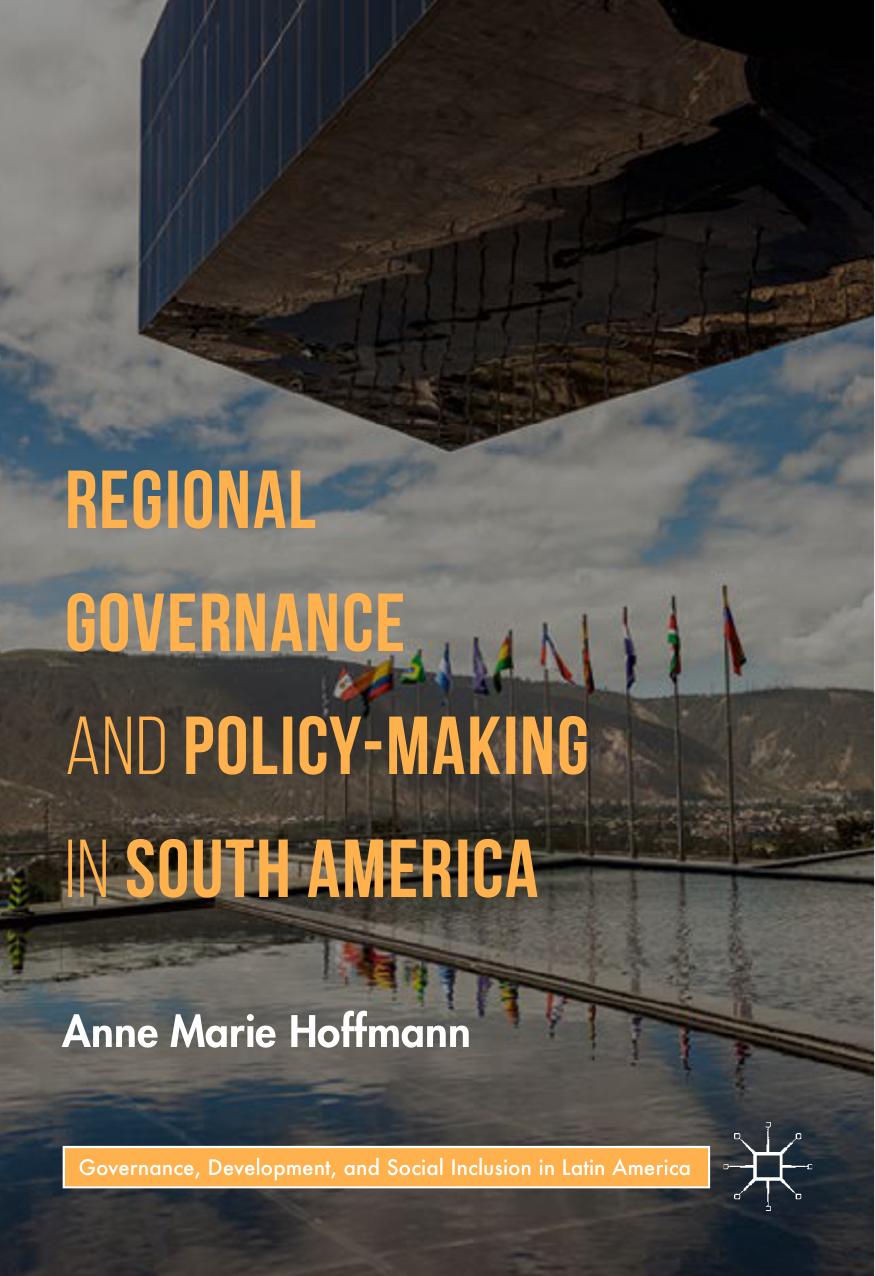Regional Governance and Policy-Making in South America by Anne Marie Hoffmann

Author:Anne Marie Hoffmann
Language: eng
Format: epub, pdf
ISBN: 9783319980683
Publisher: Springer International Publishing
Venezuela
12.4
1,218,896.21
12.40
1,347,164.15
11.60
1,260,250.33
Nov-60
1,260,250.30
346,491.93
1,008,290.00
Total
100
9,830,375.00
100
11,872,517.00
100
10,864,227.00
100
10,864,227.00
Source: CMRE (2015a, 2016)
Additionally, member states are required to cover all expenses for sending their staff to meetings, projects, or seminars. A highly disputed problem in this context is whether third-party funding should be extended. External financing of initiatives or projects is part of the Union’s external relations and is regulated in the “Policy Guideline of UNASUR for the relation with third parties” (CJEG 2012) which has been approved in November 2012 by the Presidential Council. The presidents herein support the relationship with other countries, regional organisms, or organizations. However, according to the regulations, all cooperation in whichever form needs the prior approval by the Ministers of Foreign Affairs (CJEG 2012, 5). When funds can be acquired, it is the General Secretariat who “legally represents the UNASUR in the case of external funding, coordinates and canalizes the approved funding”30 (CJEG 2012, 6). The relations with third parties, moreover, are being debated in the Council of Delegates. To acquire project specific, external funding for sectoral councils, therefore, becomes laborious. In sectoral councils, states may finance projects themselves, if they wish to do so. However, most of the states are not able to do that, for different reasons that I am going to discuss in the next chapter. Financing, accordingly, is a significant restriction in regional public policy-making in the context of UNASUR. For the poorest countries, the mere participation in regional cooperation is costly. As the South American countries are highly dissimilar, the general budget of UNASUR provides financial support to the financially weakest members. For example, in 2016, Bolivia, Guyana, Suriname, and Paraguay each could receive refunding up to US$ 50,000 from the general budget (CMRE 2015a, Resolución 018/2015, 6).
Major items in the UNASUR budget are expenses for the maintenance of permanent institutions. The institutions currently sustained by UNASUR are the Center for Strategic Defense Studies (CEED) as well as the Institute on Health Governance (ISAGS), which are technical bodies of the Defense Council and the Health Council, respectively. Both are budgeted with approximately US$ 1 million per year per institution (CMRE 2015a, 5). Another budget item, which is mainly relevant for the work of sectoral councils, is the FIC (Fondo de Iniciativas Comunes), which is the fund for joint initiatives. In the resolution of June 2012, the Council of Ministers of Foreign Affairs recognized the necessity to “optimize the use of available resources for the development of common incentives”31 (CMRE 2012b) and approved an amount of US$ 750,000 for the respective fund. This fund, administered by the General Secretariat, finances the common temporary initiatives. According to the mentioned resolution, these initiatives are projects which are proposed by the sectoral councils and have to have “a high social impact in the territory of the Union, which benefits the population of the Member States directly”32 (CMRE 2012b). Other institutions of UNASUR, such as ISAGS or CEED, or permanent working groups, may carry out projects of the fund as well. The initiatives shall have a positive impact on civil society and contribute to its participation in and benefit of the integration process.
Download
Regional Governance and Policy-Making in South America by Anne Marie Hoffmann.pdf
This site does not store any files on its server. We only index and link to content provided by other sites. Please contact the content providers to delete copyright contents if any and email us, we'll remove relevant links or contents immediately.
| Arms Control | Diplomacy |
| Security | Trades & Tariffs |
| Treaties | African |
| Asian | Australian & Oceanian |
| Canadian | Caribbean & Latin American |
| European | Middle Eastern |
| Russian & Former Soviet Union |
The Secret History by Donna Tartt(19047)
The Social Justice Warrior Handbook by Lisa De Pasquale(12187)
Thirteen Reasons Why by Jay Asher(8893)
This Is How You Lose Her by Junot Diaz(6877)
Weapons of Math Destruction by Cathy O'Neil(6264)
Zero to One by Peter Thiel(5786)
Beartown by Fredrik Backman(5737)
The Myth of the Strong Leader by Archie Brown(5496)
The Fire Next Time by James Baldwin(5431)
How Democracies Die by Steven Levitsky & Daniel Ziblatt(5213)
Promise Me, Dad by Joe Biden(5141)
Stone's Rules by Roger Stone(5081)
A Higher Loyalty: Truth, Lies, and Leadership by James Comey(4951)
100 Deadly Skills by Clint Emerson(4919)
Rise and Kill First by Ronen Bergman(4778)
Secrecy World by Jake Bernstein(4740)
The David Icke Guide to the Global Conspiracy (and how to end it) by David Icke(4699)
The Farm by Tom Rob Smith(4502)
The Doomsday Machine by Daniel Ellsberg(4484)
